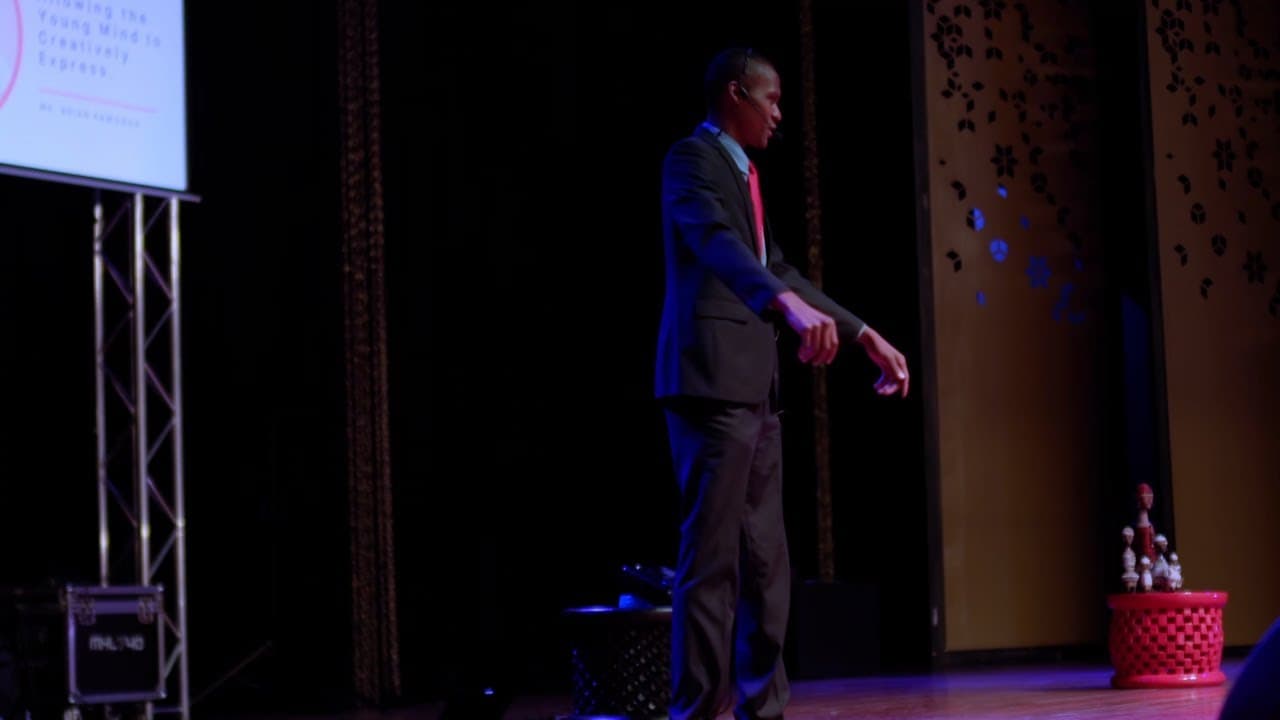Allowing the Young Mind to Creatively Express | Brian Kawonga | TEDxLOTS Youth
05 Nov 2024 (1 year ago)

Introduction
- The audience is asked to raise their hands if they are caregivers of young people, and it is noted that there are both caregivers and young people present in the audience (14s).
- A question is posed to the adults in the audience, asking if they remember having an idea as a young person that they wanted to share with the world but were not given the opportunity to express it due to their age (49s).
- The adults are asked to reflect on their memories and feelings associated with not being given the opportunity to express their ideas as young people (1m57s).
- As adults, there is a responsibility to help young creative minds express themselves and eventually become part of the solution to bigger problems (2m17s).
- Creativity is defined as the ability to provide possible solutions to common problems in an uncommon way (2m41s).
- The importance of creativity in young people is highlighted, and it is noted that it is often at the center of their minds (3m9s).
Personal Anecdote and Journey into Art
- A personal anecdote is shared about growing up in a family where both parents were teachers, which created high expectations and pressure to perform (3m24s).
- The pressure to perform led to difficulty in expressing oneself freely, especially when the mother became the class teacher (4m7s).
- However, when the individual went to high school, they became more open and took an interest in art and design, which helped them express themselves more freely (5m12s).
- The individual eventually challenged the norms and questioned the academic cycles, leading them to pursue art in college and become an art teacher (5m48s).
- As an art teacher, the individual is able to relate to young creative minds and has seen the attributes of adulthood that can prevent them from freely expressing themselves (6m33s).
Obstacles to Creative Expression in Young People
- One of the attributes of adulthood that can prevent young creative minds from expressing themselves is the demand for respect, especially in certain cultural contexts (7m34s).
- Expectations from adults can hinder young minds from creatively expressing themselves, as adults often feel inferior when presented with solutions from younger individuals, leading to discomfort and a lack of opportunity for the young to share their views (8m2s).
- Sayings like "youths are the Future Leaders of Tomorrow" can be misleading, as they imply that the young should wait for their time to come, rather than being given the opportunity to express themselves and provide solutions to immediate problems (8m44s).
- Adults often suppress the solutions to immediate problems by telling the young to wait for their time to come, and instead focus on studying and obeying their parents (9m29s).
- Perfectionism is another attribute that hinders young minds from creatively expressing themselves, as adults often expect the young to become perfect without allowing them to make mistakes and learn from them (9m44s).
- This perfectionism can put pressure on the young mind, preventing them from growing and developing at their own pace (10m55s).
- Excessive empathy from parents can also hinder young minds, as it can prevent them from experiencing the necessary pain and struggle that comes with learning and growth (11m24s).
- A story about a boy and a butterfly illustrates the importance of allowing the young to experience struggle and pain in order to grow and develop, as the boy's excessive empathy ultimately hindered the butterfly's ability to fly (12m30s).
- The process of a butterfly emerging from its cocoon is a necessary struggle for it to become a beautiful flying creature, and similarly, the creative young mind needs to go through a painful process to reach the next step in its development (14m30s).
- As teachers, it's essential to allow students to face challenges and assessments without making it too easy for them, as this will help them learn and grow, rather than giving them free answer sheets or simplifying the questions (15m25s).
- Young minds are often excited to share their ideas and beliefs, but adults, especially teachers, tend to ignore their concerns, which can be a serious mistake, as these ideas may hold valuable solutions (16m11s).
Encouraging Creative Expression in Young People
- Adults should encourage young minds to creatively express themselves by providing opportunities for participation in thought-provoking activities, allowing them to discover their strengths (17m54s).
- Limiting distractions and giving young minds the freedom to try without too many instructions and restrictions can help them develop their creative thinking (18m43s).
- Adults should avoid imposing their own values and pursuits on young minds, as this can stifle their creativity and prevent them from exploring their own interests (19m0s).
- Giving young minds the opportunity to creatively express themselves can lead to innovative solutions to problems, and adults should celebrate and encourage these achievements (19m35s).